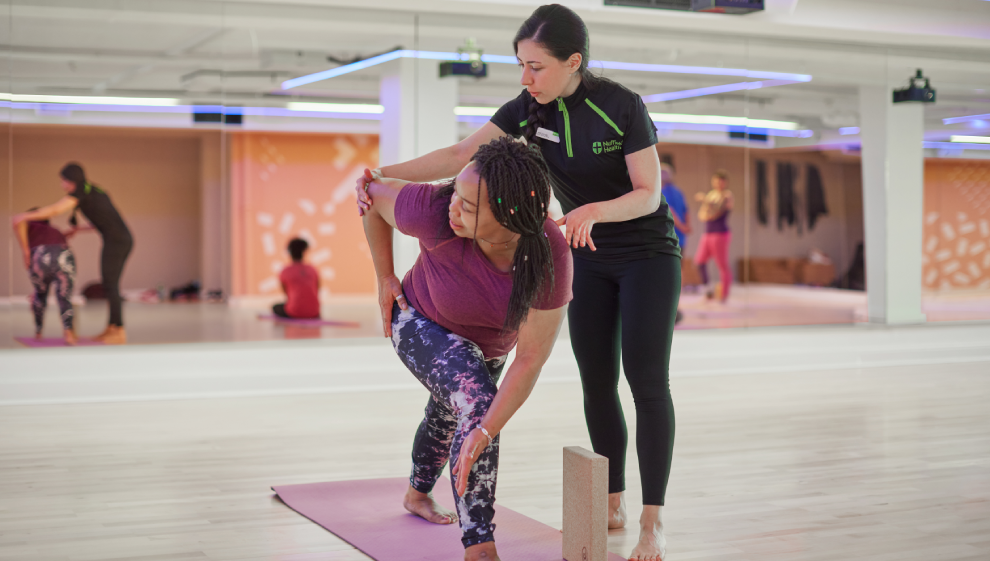Women shouldering the impact of joint pain, reporting greater emotional as well as physical impacts
- Overview
Exploring joint pain's impact on physical activity and emotional wellbeing
The data, released as part of Nuffield Health’s Healthier Nation Index, highlighted that nearly half of females surveyed with joint pain said it impacted their sleep (47%), physical health and fitness (46%), and emotional wellbeing (44%.) Men, on average, were ten percentage points less likely to report these impacts, with 37% saying it had impacted their sleep, 40% physical health and 34% emotional wellbeing impacts.
Findings also showed that women are, on the whole, suffering with joint pain more, with 80% saying they had suffered with or are currently suffering with joint pain, compared to 77% of men. Versus Arthritis estimates 50% more women have osteoarthritis in the UK than men, with six million suffering compared to four million men1, and of the 20 million people in the UK with a musculoskeletal (MSK) condition, over 50% (11.6 million) are women2.
When asked what the biggest health care challenge was amongst their family and friends; 15% of people polled cited pain (joint, muscular, chronic), second only to mental ill health (19%). The Government has prioritised MSK conditions alongside mental health and cardiovascular as key long-term sickness conditions that contribute to the disability employment gap.
As well as disproportionately impacting women, the data also showed those with lower household incomes are also suffering more, with people earning £15,000 or less being twice as likely to have joint pain than those earning over £75,000.

The Index found that the nation's sleep is particularly impacted by joint pain, with 56% of people suffering saying their sleep had got worse in the last year, compared with 37% of people who had never had joint pain. On average, people with joint pain also get 40 minutes less sleep a night than people without joint pain.
Despite the wide-ranging impacts of the condition, one in five people incorrectly dismissed it as part of the normal ageing process, and only 17% of people living with joint pain were aware of what types of exercise could help.
Nuffield Health runs a free-to-access joint pain programme to help those suffering to get their lives back. The free-to-access programme has helped over 11,000 people and the clinical outcomes have been significant, with participants reporting an average improvement of 35% in symptoms of pain and an average improvement of 37% in joint function following the 12-week programme. Participants also reported a 26% reduction in symptoms of anxiety in this time. Blood pressure and Body Mass Index of participants was also reduced.
Joint pain programme
With 50% of people polled with joint pain saying their physical health had got worse in the last year, and 40% of people said their mental health had also got worse, the Charity has also launched tips and advice on their website.
Marc Holl, Head of Primary Care at Nuffield Health said: “Joint pain has been ignored for far too long, and our data shows the shocking extent to which it is impacting the nation. It affects everything; working, sleeping, walking, exercising and even resting. When we look at the worrying numbers of people, and particularly women, such things are only going to get worse.
Our Joint in for Joint Pain campaign is shining a spotlight on the issue and raising awareness of the things people can do to help tackle it, including our free to access programme which we are proud to run across the UK to help anyone suffering.”
Rachael Smith, 37, from Cannock, who was a participant on the programme said: “I have always been an active person, a regular at the gym and a competitive swimmer in my teenage years. After having three children the pain in my back and joints topped me living my life, I stopped seeing friends and it got so bad I couldn’t even pick up my own children.
“The programme has meant I can manage my pain, understand what exercise I should be doing and know more about how diet can help improve my symptoms. I am on barely any medication and my doctor has discharged me.
“I have also had another baby and I was able to get through the 37 weeks with minimal pain, and can carry my children safely. I would urge everyone to take the important step to managing their pain and getting their lives back.”
- Visit https://www.nuffieldhealth.com/joints to find out more about how to prevent and manage joint pain.
[1] 6285 of respondents currently have, or have had joint pain
Last updated Monday 4 September 2023
First published on Monday 4 September 2023
